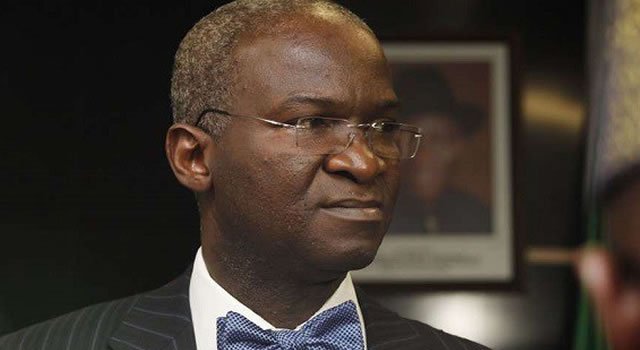News
Aerial vehicles soon to be deployed for border security —Fashola

The Federal Government of Nigeria has declared that it would soon deploy aerial vehicles to survey the Trans-African region to enhance border security.
This was revealed on Wednesday at a meeting in Abuja by the Minister of Works and Housing, Babatunde Fashola, who stated that the first phase of the project will stretch from the Lagos-Abuja corridor to Ivory Coast.
Speaking further at the meeting with the management of the African Regional Institute for Geospatial Information Science and Technology, Fashola said that the security apparatus that will be deployed in the future will be increasingly technology-based and their effectiveness depends a lot on geospatial data.
READ ALSO: SMUGGLING: Falana says Nigerian govt’s border closure policy ‘primitive’
He said: “We want to bring in some aerial vehicles to do aerial survey for the Lagos-Abuja highway corridor that is connecting Nigeria through Seme border to Benin, all the way to Ivory Coast. That is the first phase.
“The security apparatus that will be deployed in the future will be increasingly technology-based and their effectiveness depends a lot on geospatial data,” Fashola added.
The comments of the Minister of Works and Housing comes months after the Minister of Interior, Rauf Aregbesola, ordered the Nigeria Immigration Service (NIS) to ensure stringent measures in protecting Nigeria’s borders to prevent unwanted visitors in the country.
Join the conversation
Support Ripples Nigeria, hold up solutions journalism
Balanced, fearless journalism driven by data comes at huge financial costs.
As a media platform, we hold leadership accountable and will not trade the right to press freedom and free speech for a piece of cake.
If you like what we do, and are ready to uphold solutions journalism, kindly donate to the Ripples Nigeria cause.
Your support would help to ensure that citizens and institutions continue to have free access to credible and reliable information for societal development.






















